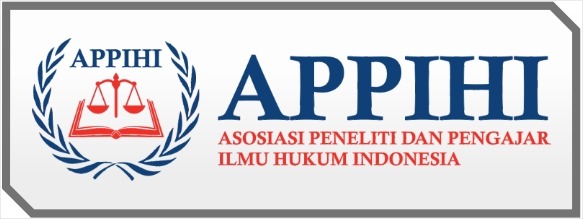Analysis of Evidence of Witchcraft Crimes Based on the New Indonesian Criminal Code
DOI:
https://doi.org/10.61194/law.v3i3.798Keywords:
Criminal, Black magic, Evidence, Criminal CodeAbstract
The pluralistic life of beliefs about spiritual matters in Indonesia is very thick and sensitive, especially the occurrence of criminal acts that are beyond common sense or cannot be proven by scientific criminal investigations, namely criminal acts of black magic perpetrators or victims of black magic which result in violations of human rights (HAM). Belief in religion which is a source of morality and spirituality which is considered as part of a tradition that has never been abandoned by Indonesian society with situations and conditions of high spiritual values makes Indonesian people's belief in God and spirits that live around humans or those that smell mystical or black magic not uncommon in every region with their respective cultural characteristics, for example human rights violations in Banyumas Regency, namely the massacre allegedly carried out by black magic perpetrators with 250 victims. With this belief, it is not uncommon for people in some areas to have or even have the ability to see supernatural things or study black magic, for their own interests. So the question arises as a problem identification, namely 1. How are efforts to prove the crime of black magic according to Law Number 1 of 2023 concerning the Criminal Code? 2. How can the elements of black magic be called a criminal act based on Law Number 1 of 2023 concerning the Criminal Code? The research method used by the author is the normative legal approach method. The normative legal approach is a legal research conducted by examining library materials or secondary data as a basis for research by tracing laws and regulations and literature related to the problems studied by the author.
References
Astawa, I. G. P. (2008). Dynamics of Law and Legislation in Indonesia”.
Criminal Code and Criminal Procedure Code Law of the Republic of Indonesia Number 1 of 2023 concerning the Criminal Code Article 252 paragraphs 1 and 2. (n.d.).
Criminal Law (RKUHP)”. (2009).
Dedi Soemardi, S. H. (1986). Sources of Positive Law”.
Frederich, C. J. (2004). Philosophy of Law: Historical Perspective.
Gie, L. (1982). Theory of Justice.
Kolip, E. M. S., & H. (n.d.). Introduction to Sociology, Understanding Facts and Symptoms of Social Problems, Theories, Applications and Solutions ”.
Lamintang, & Lamintang, T. (2009). }, date = {2009. In Crimes that Violate Moral and Proprietary Norms.
Marzuki, P. M. (2016). Legal Research 2016.
Nasution, M. S. A. (2017). }, publisher = {Second Edition, Kencana. In Law in a Philosophical Approach.
Ningsih, N. (2017). The Legal Basis of Witchcraft and Shamanism from an Islamic Perspective ”.
Nugroho, W. A. (n.d.). Punishment for Black Magic Perpetrators.
Prananingrum, A. N. H. (2019). Justice in Vegetable Sale and Purchase Agreements. Journal of Legal Studies, l(2).
Putra, P. S. W. (2020). Legal Policy on the Regulation of Magic in Indonesian Criminal Law (Vol. 3).
Raharjo, S. (n.d.). Legal Science ”.
Ruhiatudin, B. (2009). Introduction to Legal Science.
Santoso. (n.d.-a). The Principles of Islamic Criminal Law Laksana, IGND et al.
Santoso, T. (n.d.-b). Principles of Islamic Criminal Law.
Satriadi. (2020). Criminal Acts of Sorcery in the Construction of the Draft Criminal Code ”.
Sutiyoso, B. (n.d.). Method of Legal Discovery: Efforts to Find Certain and Just Law.
Taufid, M. (2014). Substantial Justice Cutting the Chain of Legal Bureaucracy.
Zaenudin, F. R. (n.d.). Criminalization of Black Magic in Indonesian Criminal Law Reform (Vol. 9).






